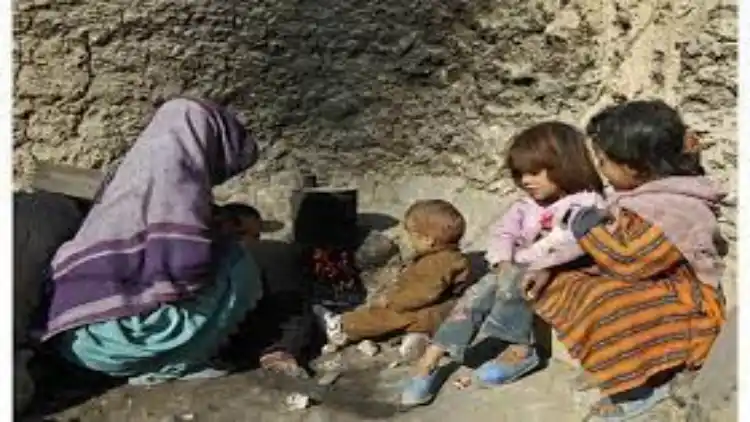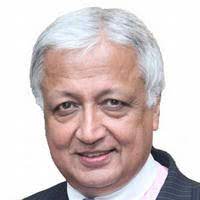

 Deepak Vohra
Deepak Vohra
The biggest risk in the Taliban-ruled Afghanistan is internal and external terrorism, poverty, and hunger. International donors have pledged more than $1bn in humanitarian aid to Afghanistan to address hunger and poverty. The World Food Programme has warned that more than 14 million Afghans could be pushed to the brink of starvation if immediate aid is not provided.
Afghanistan is a heavily tribal society in which clan loyalties far outweigh any sense of national identity. The Taliban are essentially a Pashtun movement. The Pashtuns represent around 42% of the population, but even among them there are many powerful and mutually antagonistic subtribes. Many Afghans conceptualize their identities not
primarily in terms of ethnicity, but about sub-ethnic loyalties. Following the Soviet withdrawal from Afghanistan in 1989, the country witnessed polarization along religious, tribal, and ethnic lines with the emergence of a multipolar and multicausal civil war.
Their tribal quarrels, jealousies, and hatreds, temporarily contained by an appeal to Islam – to the overriding demands of the jihad – came right back.
For 20 years. America tried to force march a mainly illiterate Islamic society into the so-called modern age, to create a nation in the western image, shining the beacon of hope on a people it did not understand.
Afghanistan’s economy over the last 20 years was essentially donor-driven, “shaped by fragility and aid dependence,” according to the World Bank, with 75 percent of public spending funded by grants. There is much hot air about the trillions of dollars in natural resources that lie under Afghanistan’s soil.
One natural resource with particularly striking potential is lithium, a metal used in batteries for mobile devices and electric cars. An internal US Defence Department memo had said the country could become "the Saudi Arabia of lithium." Yet this potential is nowhere near being exploited - and the Afghan people have seen very little, if any, benefit from it as political instability prevents the extraction of these resources.
With international forces and NGOs gone, unemployment is soaring, the economy is cratering, worsening a severe humanitarian crisis. With the Taliban in charge, there will be less foreign aid. Like many developing countries, Afghanistan holds some of its assets overseas, including in the US, where the Taliban is the subject of economic sanctions.
For example, the country had more than $1.3bn worth of gold stored at the Federal Reserve Bank of New York at the end of 2020, according to an independent auditor’s report, while $7bn of its hard currency is with the US Federal Reserve.
The US Federal Reserve, the World Bank, and the International Monetary Fund have continued a freeze on Afghan assets, a measure put in place after the Taliban seized power from the elected Afghan government in August 2021. The largest-ever allocation of the International Monetary Fund’s Special Drawing Rights was set to go into effect 23 August 2021 including an estimated $460m in SDRs for Afghanistan, but the Taliban is currently blocked from accessing it
Inside Afghanistan were only a few million dollars, and departing President Ashraf Ghani reportedly took most of them. The World Bank that has since 2002 committed more than $5.3bn for reconstruction and development projects in Afghanistan, has halted funding for projects in Afghanistan after the Taliban seized control, concerned over how the Taliban's takeover will affect "the country's development prospects, especially for women"
The Biden administration has not lifted sanctions against the Taliban. The German Foreign Minister has said that “we will not give another cent if the Taliban takes over the country and introduces Sharia law."
Security and severe corruption are the other persistent problems in Afghanistan. According to United Nations data, there were no announcements in the last two years of new "greenfield" investments. Since 2014, there have been a total of four. Compare this to two South Asian countries with somewhat smaller populations that have both been through unsettling civil disturbances. Nepal has managed 10 times as many and Sri Lanka 50 times more over the same period.
A key question for any hard-nosed potential investors - from China or anywhere else - will be whether the Taliban is likely to be any more able than the previous Afghan government to create the kind of environment they need
Lack of access to money will further erode the Afghan economy. Already since the Taliban takeover, prices have skyrocketed. Long queues are seen outside the banks for money withdrawal across Afghanistan.
The Taliban has always relied on criminal activities to fund itself, “including drug trafficking and opium poppy production, extortion, kidnapping for ransom, mineral exploitation and revenues from tax collection in areas under Taliban control or influence”, according to a United Nations Security Council report published in June 2021.
The report estimates that the group has an annual income of between $300m and $1.6bn. The UN noted that “external financial support, including donations from wealthy individuals and a network of non-governmental charitable foundations, also account for a significant part of Taliban income.” Profits from the mining sector earned the Taliban approximately $464 million” in 2020.
But the people of Afghanistan are in an increasingly precarious position. Almost half of the Afghans live below the poverty line(2020), according to data from the Asian Development Bank. A third of people with jobs live on less than $1.90 per day. Most households rely on the low-productivity agriculture sector for their income, and security issues, corruption, and political instability have all held back private-sector development, leading Afghanistan to rank 173/190 countries in the World Bank’s 2020 Ease of Doing Business Survey
With a fifth of the people unemployed, we may expect depreciating currency, surging inflation, and rising food prices to fuel anger.
A broke Pakistan is unable to fund Afghanistan, so it begs the world to forestall economic collapse in its neighbour. China, facing its economic challenges, holds its purse strings tightly and appeals to everybody to “guide” the Taliban.
Oil and gas companies, once willing to do business with the Taliban in the late 1990s, are unlikely to be as willing in the 2020s
If the world strangles Taliban Afghanistan financially, China will cluck in sympathy but do precious little.
It wants Afghan territory (as it wants everybody else’s) but it will not dare grab it, knowing Afghanistan’s history of resisting foreign occupation.
Contrary to the popular non-wisdom much bandied about on our TV channels, the Taliban will seek a partnership with India. It matters more to them than anything else. We did not participate in the US war against the Taliban in 2001 but kept up our support to the people of Afghanistan during the democratic regime.
(Deepak Vohra is a senior diplomat, special Advisor to Prime Minister on Lesotho, South Sudan and Guinea-Bissau and Special Advisor to Ladakh Autonomous Hill Development Councils, Leh and Kargil)
